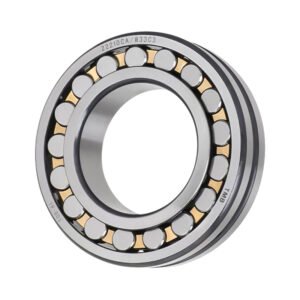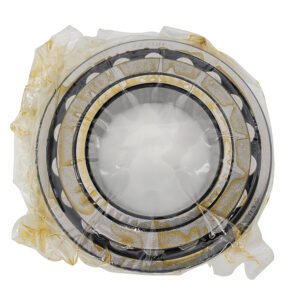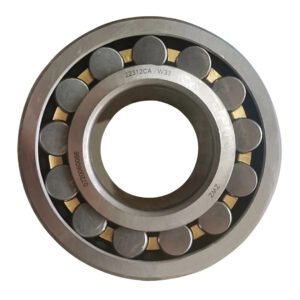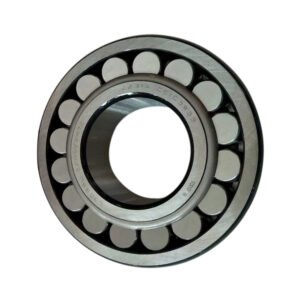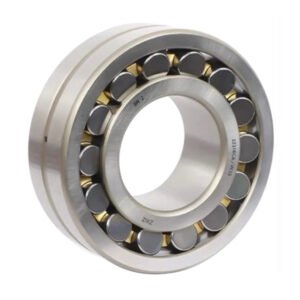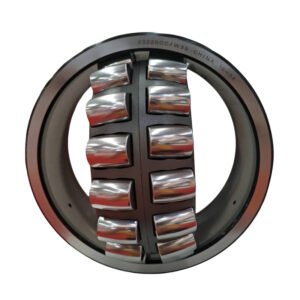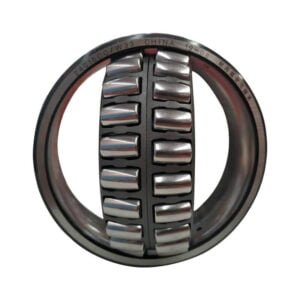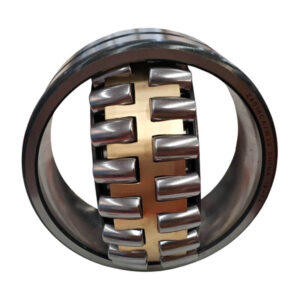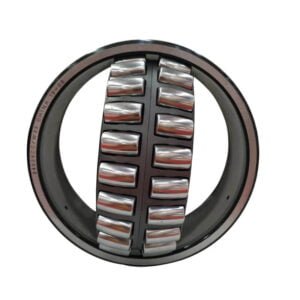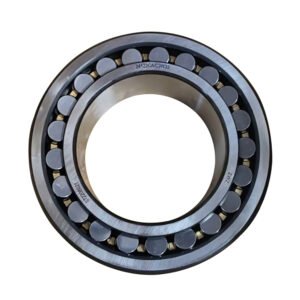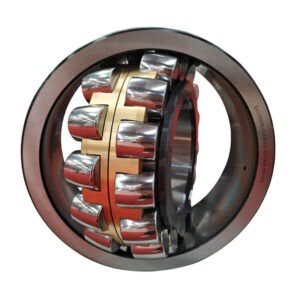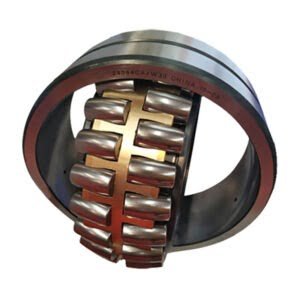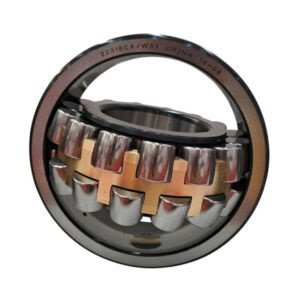Spherical Roller Bearings
Home >> Industrial Bearings >> Roller Bearings >> Spherical Roller Bearings
Have Query?
Best Spherical Roller Bearings For Machines
Spherical roller bearings (SRBs) are widely used in many industrial applications due to their ability to bear great loads both in the radial and axial direction and to tolerate angular misalignment. The rugged design and adaptability built into the SRBs make them key components in machinery operating under severe working conditions.
What Are Spherical Roller Bearings?
Although spherical roller bearings are considered rolling-element bearings, they consist of two rows of barrel-type rollers mounted between an inner ring, whose two raceways are inclined at an angle to the bearing’s axis, and an outer ring, which itself has a common spherical raceway. This design results in the accommodation of radial and axial loads in both directions while allowing angular misalignment between the shaft and housing and compensating for it.
Key Advantages of Spherical Roller Bearings
- Angular Misalignment Compensation
The compensation of angular misalignment is one of the outstanding features of SRBs. The spherical form of the outer ring raceway permits the interactions between roller and shaft deflections or housing distortions and reduces bearing stress, hence extending bearing life.
- High Load Capacity
SRBs are designed to bear heavy radial loads and axial loads acting together. Their double-row design and a larger surface area of the contact between rollers and raceways allow for a relatively high load capacity, hence making them a good choice for the most demanding applications.
- Reliability and Long Life
The SRBs are built rugged for heavy-duty applications under difficult environmental conditions: high-speed and heavy-load applications contaminated and exposed too much to harsh conditions. The durable nature of the SRBs ensures reliability in performance and minimized frequency of maintenance and replacement.
- Versatility of Uses
SRBs are used across industries from mining, construction, steel processing, paper making, and power generation. They are preferred in various heavy-duty machinery and equipment due to their versatility.
Common Applications
- Mining and Construction: In high load machinery like crushers and conveyors under extreme conditions, SRBs are used.
- Steel Processing: In applications such as rolling mills and other steel manufacturing equipment, SRBs take care of the heavy radial and axially oriented loads during production.
- Paper and Pulp: SRBs take care of the under-loaded heavy machinery used in paper machines and pulp processing, thereby ensuring smooth functioning under challenging conditions.
- Power Generation: SRBs take care of heavy loads and high-speed turbines and generators that are essential for power generation.
- Marine: SRBs are used in the ship propulsion system and offshore drill equipment, hence managing radial and axial loads while allowing for misalignment.
Limitations of Spherical Roller Bearings
SRBs are known to offer certain advantages. However, they do have their associated limitations.
Axial Load Capacity: they cannot accommodate pure axial loads. Other types of bearing have greater capabilities for axial loads than SRBs.
Slow Speed: They are not built to accommodate higher speeds due to the design of the SRB.
Installation Considerations: Although installation is an important aspect, installation without misalignment and an installable gap should assure ideal performance. The uneven load distribution and early failure of the bearing are consequences of misalignment at the time of installation.
Choose Decent Machinery for Spherical Roller Bearings
There are essential machinery components that are spherical roller bearings designed to perform under high loads and in harsh working conditions. Indispensable as they are, their capability to accommodate misalignment, high radial and axial load handling, durability, and reliability has made them quite common in a variety of industries.
Knowledge of their design, benefits, and limitations becomes a necessity to find the right bearing suitable for specified needs and subsequently assuring optimal functioning of that bearing.
Further learn more and get any type of spherical roller bearing from the Spherical Roller Bearings Collection at Decent Machinery.
Frequently Asked Questions about Spherical Roller Bearings
Q1: How do I select the appropriate spherical roller bearing for my application?
The appropriate SRB must take into account the load magnitude and direction, operating speed, misalignment conditions, and environment. You may also consult your bearing manufacturer, or refer to industry standards to ensure your proper bearing size and type selection.
Q2: Is it possible to have their usage in both directions?
They can take axial loads in both directions, which makes them suitable for applications that require bidirectional axial load tendencies.
Q3: Which maintenance practices are recommended for spherical roller bearings?
Regular inspection, correct lubrication, and protection from contaminants make the important maintenance practices. Proper features of installation, alignment, as well as condition monitoring of bearings are effective to prolong service life and avoid premature failure.
Q4: Are there different types of spherical roller bearings?
Yes, SRBs come in different designs such as sealed and open with various cage materials like steel, brass, or polyamide. The design is chosen depending on the application’s specific requirements regarding load, speed, and environment.

